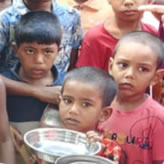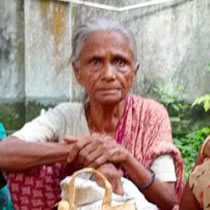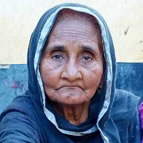Lotus Ministry Trust Expansion, Plans & Strategy for Sri Lanka
- Jeffrey Dunan
- Sep 25, 2025
- 14 min read
Updated: Sep 26, 2025
Key Takeaways
Lotus Ministry Trust is expanding its humanitarian efforts to Sri Lanka with a comprehensive three-phase strategy focused on food relief, education, and community development.
The expansion targets five key regions across Sri Lanka, prioritizing areas with the highest rates of food insecurity and educational gaps.
Local partnerships and culturally-sensitive approaches will form the foundation of Lotus Ministry Trust's work in Sri Lanka.
The organization's proven success in Bangladesh provides a strong framework for addressing similar challenges in Sri Lankan communities.
Transparency and community involvement are central to Lotus Ministry Trust's implementation strategy, ensuring sustainable impact beyond initial aid.
Please Share The News, and Help If You Can
Lotus Ministry Trust, known for its impactful humanitarian work in Bangladesh, is set to extend its reach to Sri Lanka in a strategic expansion that promises to address critical needs in vulnerable communities. The organization has developed a comprehensive plan that builds on its successful model while adapting to Sri Lanka's unique context and challenges.
This expansion comes at a crucial time for Sri Lanka, as the country continues to face economic hardships that have exacerbated food insecurity and educational disparities. Learn more about how Lotus Ministry Trust is addressing these pressing humanitarian needs through its proven community-centered approach.
Why Sri Lanka? Understanding the Humanitarian Needs
The decision to expand into Sri Lanka stems from comprehensive research highlighting alarming humanitarian challenges that align with Lotus Ministry Trust's core competencies. Recent economic crises have pushed nearly 30% of Sri Lankans into food insecurity, with rural areas experiencing the most severe impacts. These conditions mirror many of the challenges successfully addressed by the Trust in Bangladesh, creating an opportunity to leverage existing expertise while adapting to local contexts.
Beyond immediate needs, the expansion represents a strategic response to growing requests from Sri Lankan community leaders who have witnessed the Trust's effective model in neighboring regions. This grassroots interest provides a foundation for meaningful partnerships that will enhance the sustainability and cultural appropriateness of all initiatives. Learn more about our initiatives and impact.
Current Food Insecurity Crisis
Sri Lanka faces a multifaceted food crisis that demands immediate attention. Inflation rates exceeding 50% for food items have rendered nutritious meals unaffordable for millions of families. In rural areas, where agriculture has been disrupted by economic instability and climate challenges, nearly 40% of children show signs of malnutrition. The situation is particularly dire in northern and eastern provinces, where historical disadvantages compound current economic hardships.
Food distribution systems have deteriorated significantly, with supply chain disruptions preventing even available food from reaching vulnerable communities. School meal programs, once a reliable source of nutrition for children, have been scaled back or eliminated entirely in many districts, creating an immediate intervention opportunity for Lotus Ministry Trust's proven food relief programs.
Educational Gaps in Rural Communities
Education in Sri Lanka's rural communities has suffered severe setbacks, creating generational risks that extend beyond immediate learning loss. School attendance has dropped by 22% in targeted expansion areas, with economic pressures forcing families to prioritize income generation over education. Many schools lack basic resources, with teacher shortages reaching critical levels in remote regions. For more insights on initiatives to combat these challenges, explore the Lotus Ministry initiatives that aim to make a difference.
Alignment with Trust's Core Mission
The expansion into Sri Lanka represents a natural evolution of Lotus Ministry Trust's foundational commitment to addressing hunger and educational disparities in South Asia. The organization's mission to "nurture communities through nourishment of body and mind" finds clear application in Sri Lanka's current context, where interconnected challenges of food insecurity and educational access mirror those successfully addressed in Bangladesh.
Strategic alignment extends to the Trust's operational model, which emphasizes local leadership development and culturally-appropriate interventions. The existing expertise in navigating complex regulatory environments while building community trust positions the organization uniquely well for effective implementation in Sri Lanka. Furthermore, the Trust's established supply chains and logistical frameworks in the region create operational efficiencies that will maximize impact for every donated dollar.
The 3-Phase Expansion Strategy
Lotus Ministry Trust has developed a methodical three-phase approach to ensure sustainable impact in Sri Lanka. This carefully structured plan balances immediate relief with long-term development goals, creating a pathway from crisis response to community self-sufficiency. Each phase builds upon the previous work while expanding both reach and depth of services.
The strategy incorporates lessons learned from Bangladesh operations while allowing for adaptation to Sri Lanka's unique cultural, economic, and social landscape. Regular evaluation points are built into the timeline, enabling course corrections based on community feedback and impact assessments.

Phase 1: Initial Food Relief Programs
The first phase prioritizes addressing immediate nutritional needs through strategic food distribution networks across targeted regions.
Mobile distribution units will extend reach to isolated communities, with routes mapped in consultation with local authorities and community leaders. Particular attention will be given to households with pregnant women, young children, and elderly members who face heightened nutritional vulnerability. Phase 1 also includes the strategic identification of school partners for future educational initiatives, laying groundwork while addressing immediate hunger needs.
Lotus Ministry Trust aims to have reliable distribution channels established in all five target regions, serving approximately 15,000 individuals regularly with emergency food support. This initial phase also focuses on relationship-building with community stakeholders, establishing trust that will facilitate later expansion into educational programming.
Phase 2: Educational Initiative Rollout
Building on established community relationships, Phase 2 introduces educational support programs strategically aligned with ongoing food security initiatives. These centers will provide academic support, creative enrichment, and nutritious meals, addressing both educational and nutritional needs simultaneously.
Teacher training programs will equip local educators with enhanced skills for teaching in resource-constrained environments, with particular emphasis on trauma-informed approaches relevant to communities experiencing economic hardship.
The Trust aims to serve 3,000 students through its educational initiatives while maintaining food relief programs. This phase emphasizes data collection on educational outcomes, establishing baselines for measuring long-term impact on literacy rates, school retention, and academic achievement.
Phase 3: Sustainable Community Development
The final phase focuses on transitioning communities toward self-sufficiency through integrated development initiatives. The Trust will launch agricultural training programs, microenterprise development, and community leadership initiatives designed to address root causes of food insecurity and educational barriers.
Community-managed food production projects will be established, creating sustainable local food sources while providing vocational training. Parent cooperatives will be formed to support educational programs, gradually increasing local ownership and management of learning centers. For more on these initiatives, read about the Rural Food Aid Revolution by Lotus Ministry.
By 2027, Lotus Ministry Trust aims to have at least 40% of initial food aid recipients participating in sustainable livelihood programs, with measurable improvements in household income and food security. The gradual transition from direct aid to capacity building reflects the Trust's commitment to avoiding dependency while creating lasting positive change in vulnerable communities.
5 Target Regions for Initial Implementation
Following extensive needs assessment and stakeholder consultations, Lotus Ministry Trust has identified five strategic regions for its initial implementation in Sri Lanka. These areas represent diverse geographical, cultural, and economic contexts, but share significant levels of food insecurity and educational challenges that align with the Trust's expertise.
1. Northern Province Communities
The Northern Province, particularly districts like Mullaitivu and Kilinochchi, continues to face developmental challenges stemming from historical conflict and recent economic pressures. Approximately 42% of households in targeted communities experience moderate to severe food insecurity, with children showing alarming rates of stunting and wasting. School dropout rates have increased by 18% since 2021, with economic hardship cited as the primary factor.
Lotus Ministry Trust will establish its first regional hub, partnering with three established community organizations that have requested support. Cultural considerations, including language needs and post-conflict sensitivities, have been incorporated into implementation plans. The Trust has already secured preliminary agreements with local authorities, facilitating rapid deployment of Phase 1 food relief programs.
Initial assessments indicate approximately 3,200 individuals will benefit from first-year programs in this region, with particular focus on female-headed households and families with school-aged children. Community consultation sessions are scheduled for September 2023 to finalize distribution locations and volunteer recruitment strategies.
2. Eastern Coastal Villages
Eastern coastal communities, particularly in Batticaloa and Ampara districts, face unique challenges related to their geographical isolation and economic vulnerability. Communities have experienced significant livelihood disruption due to economic factors and fuel shortages, creating acute food insecurity for families previously self-sufficient.
Educational facilities in these areas suffer from teacher shortages and inadequate resources, with some schools reporting only 60% of necessary educational materials.
The Trust's approach in this region emphasizes mobile distribution methods to reach scattered coastal villages. Cultural and religious diversity in these communities necessitates carefully tailored approaches to food distribution and educational programming, with separate strategies developed for Buddhist, Hindu, Muslim, and Christian communities.
Partnerships with local associations will provide critical insights into community dynamics and facilitate trust-building. Phase 2 educational initiatives will include specific components addressing ocean conservation and sustainable fishing practices, creating relevant connections between educational programs and community livelihoods.
3. Central Highland Rural Areas
The Central Highlands present unique challenges due to their remote location and agricultural dependence. Communities in Nuwara Eliya and Badulla districts have experienced severe economic downturns as agricultural enterprises struggle with rising costs and climate impacts. School attendance in these regions has dropped nearly 30% as children join parents in seeking alternative income sources. Nutritional assessments indicate over 35% of children under five show signs of stunting.
Lotus Ministry Trust will establish partnerships with workers' associations to implement culturally appropriate food assistance programs. The Trust's experience working with agricultural communities in Bangladesh provides valuable frameworks that will be adapted to Sri Lanka's unique highland context. Educational initiatives will incorporate flexible scheduling to accommodate seasonal agricultural work patterns. For more on the impact of these initiatives, explore the Rural Food Aid Revolution.
First-phase implementation aims to reach approximately 3,500 individuals in highland communities, with strategic distribution points established at community centers and schools. Particular attention will be given to addressing micronutrient deficiencies common in these regions through targeted food package design.
4. Southern Underserved Districts
While southern Sri Lanka generally shows better development indicators than northern and eastern regions, pockets of extreme poverty exist, particularly in rural Hambantota and Matara districts. These communities have been disproportionately affected by recent economic challenges, with tourism downturns eliminating critical income sources. Educational infrastructure remains intact but resource shortages have compromised quality, with student-teacher ratios exceeding 40:1 in targeted communities.
Lotus Ministry Trust will implement targeted interventions in identified high-need villages, focusing on households below the poverty line as identified through community consultations and government data. Implementation in this region will emphasize building local capacity, with accelerated training for community volunteers to manage distribution networks.
Approximately 2,200 individuals will receive direct assistance in first-phase operations, with educational programming focused on bridging resource gaps in existing schools rather than establishing separate learning centers. This approach maximizes efficiency while strengthening rather than duplicating existing educational infrastructure.
5. Western Urban Poverty Pockets
Urban poverty presents distinct challenges requiring tailored approaches. The Trust has identified specific communities in Colombo's outskirts where rapid urbanization has created dense pockets of poverty with limited access to services. School dropout rates in these communities have risen dramatically, with many children entering informal labor markets. Food insecurity takes different forms than in rural areas, with access rather than availability often being the primary barrier.
Implementation in urban areas will focus on establishing community kitchens in partnership with local religious institutions and community centers. These facilities will provide nutritious meals while serving as distribution points for take-home food packages. The urban strategy includes specialized educational components addressing challenges specific to urban settings, including navigating formal employment opportunities and urban safety.
First-phase operations aim to reach approximately 3,000 individuals in targeted urban communities. Special attention will be given to identifying and supporting households headed by single parents and those with disabled family members, who face heightened vulnerability in urban settings with limited community support networks.
Funding Model and Resource Allocation
Lotus Ministry Trust has developed a comprehensive financial strategy to ensure the sustainability and accountability of its Sri Lanka expansion. This approach balances immediate operational needs with long-term financial stability while maintaining the Trust's commitment to directing at least 85% of all funds directly to program implementation.
Primary Funding Sources
The Sri Lanka expansion will be supported through a diversified funding approach that minimizes vulnerability to single-source fluctuations.
"Our funding approach emphasizes sustainability and transparency. We're not just seeking donations; we're building financial partnerships that will sustain these communities through their journey from crisis to self-sufficiency." — Financial Director, Lotus Ministry Trust
Transparency and Accountability Measures
Lotus Ministry Trust is implementing enhanced financial transparency measures for the Sri Lanka expansion. Administrative costs will be capped at 12% across all phases, with any efficiencies gained redirected to direct service provision. The Trust's existing digital financial management system has been enhanced with additional modules specific to multi-country operations, ensuring seamless integration of Sri Lankan activities into overall financial oversight mechanisms.

On-the-Ground Operations Structure
Effective implementation requires a robust operational framework that balances centralized oversight with localized decision-making. Lotus Ministry Trust has designed an operations structure specifically for the Sri Lanka expansion that incorporates lessons learned from Bangladesh while adapting to Sri Lanka's unique context.
Local Leadership Development
Central to the Trust's approach is the identification and development of local leaders who will ultimately guide program implementation. Recruitment efforts have already identified 17 potential Sri Lankan team members with relevant experience in humanitarian work and deep community connections. The leadership development pathway includes intensive training in the Trust's operational methodology, shadowing experiences with established programs in Bangladesh, and ongoing mentorship from senior organizational leaders.
By program launch, each target region will have a core team of local staff members supported by a regional coordinator. Within 18 months, the Trust aims to have Sri Lankan nationals in at least 80% of leadership positions, with a pathway to complete local leadership by the end of Phase 2. This approach ensures cultural appropriateness while building sustainable local capacity that will remain within communities even after the formal program concludes. Learn more about the Lotus Ministry initiatives.
Volunteer Recruitment Strategy
The operational model relies heavily on trained volunteers who extend program reach while strengthening community ownership. Each target region will establish a volunteer coordination center responsible for recruiting, training, and supporting local volunteers. The volunteer strategy emphasizes diversity in age, gender, and background to ensure representation across community segments.
Volunteer roles are tiered according to commitment level and responsibility, from occasional distribution support to regular educational program facilitation. Training programs are tailored to each tier, with clear pathways for volunteers to increase their involvement and responsibility over time. Volunteer retention strategies include recognition programs, skill development opportunities, and modest stipends for those in higher-commitment roles.
Supply Chain and Logistics Framework
A robust supply chain is critical to program success, particularly for food distribution initiatives. The Trust has mapped comprehensive logistics pathways for each target region, identifying reliable suppliers, transportation partners, and storage facilities.
Where possible, food procurement will prioritize local producers to support regional economies while reducing transportation costs and environmental impacts.
Regional distribution hubs will be established in strategic locations with consideration for accessibility, security, and proximity to target communities. Each hub will maintain sufficient inventory to continue operations for at least two weeks in case of supply chain disruptions, with expanded reserves during monsoon season when transportation challenges increase.
Mobile distribution units using three-wheeler vehicles common in Sri Lanka will extend reach to isolated communities on regular schedules. Digital inventory management systems will track all resources from procurement to distribution, enabling real-time adjustments to meet changing community needs while preventing waste and ensuring accountability.
Success Measurement Framework
Measuring impact effectively requires both quantitative metrics and qualitative understanding of community experiences. Lotus Ministry Trust has developed a comprehensive evaluation framework that will track outcomes across multiple dimensions while providing actionable insights for program improvement.
Community Feedback Mechanisms
Continuous improvement relies on robust feedback from program participants and community stakeholders. The Trust has designed multiple feedback channels adapted to Sri Lankan cultural contexts, including community feedback committees in each target location, anonymous suggestion systems accessible at all distribution and program sites, and regular community forums facilitated by local staff. Monthly "listening sessions" will create structured opportunities for community members to share experiences and suggestions directly with program leadership.
Challenges and Mitigation Strategies
Expansion into Sri Lanka presents significant challenges that require proactive planning and flexible response capabilities. Lotus Ministry Trust has conducted comprehensive risk assessment and developed mitigation strategies for key challenges identified through research and stakeholder consultations. This preparation enables the organization to navigate obstacles while maintaining program integrity and community trust.
Regulatory Navigation
Operating in a new national context brings complex regulatory requirements that must be carefully managed. The Trust has secured legal counsel specialized in Sri Lankan NGO regulations and has already initiated the registration process with relevant government authorities. Preliminary approvals have been obtained from the Ministry of Social Welfare, with final documentation pending for regional operations. To mitigate potential delays, the Trust has established partnerships with locally registered organizations that can facilitate initial operations while permanent registration is finalized.
Import regulations affecting food and educational materials have been thoroughly researched, with supply chains designed to maximize use of locally available resources while complying with requirements for any imported goods. Tax implications for both organizational operations and international staff have been addressed through appropriate planning and documentation. Regulatory compliance training will be mandatory for all staff, with refresher sessions conducted quarterly to address any regulatory changes.
Cultural Sensitivity Approaches
Sri Lanka's diverse cultural landscape requires thoughtful approaches that respect local traditions while effectively addressing humanitarian needs. Food distribution programs have been designed with attention to religious dietary restrictions, cultural food preferences, and traditional meal patterns.
Staff training includes extensive cultural competency components specific to Sri Lankan contexts, with particular attention to appropriate communication styles, gender considerations, and religious observances. Local advisory committees with diverse membership will provide ongoing guidance on cultural appropriateness throughout implementation. Program scheduling will accommodate important religious and cultural events, with contingency plans for anticipated activity disruptions during major festivals and observances.

Please Help Us Help Forgotten And Neglected Citizens
Call to Support the Sri Lanka Expansion
The Lotus Ministry Trust Sri Lanka expansion represents a critical opportunity to address urgent humanitarian needs while building sustainable pathways to community resilience.
Your support can directly impact thousands of lives across the five target regions, providing not only immediate relief but contributing to lasting positive change for vulnerable communities. Whether through financial contributions, volunteer engagement, professional expertise, or partnership opportunities, there are numerous ways to join this transformative initiative. To learn how you can be part of this important work, visit Lotus Ministry Trust today.
Frequently Asked Questions
As we prepare for this significant expansion, we've compiled answers to the most common questions about our Sri Lanka initiative. These responses provide clarity on our approach, timeline, and opportunities for involvement while addressing potential concerns from supporters and stakeholders. For more details on our impact, check out our Rural Food Aid Revolution.
How can individuals or organizations partner with Lotus Ministry in Sri Lanka?
Partnership opportunities exist at multiple levels, from individual volunteering to institutional collaboration. Individuals can contribute through financial donations (one-time or recurring), volunteer service in program implementation, professional expertise sharing, or advocacy within their networks. Organizations can engage through formal partnerships (documented by MOUs), in-kind donations of food or educational materials, logistical support, facilities sharing, or collaborative programming. The Trust has established a dedicated partnership coordinator who can be reached at partnerships@lotusministrytrust.org to discuss specific opportunities aligned with your interests and capabilities.
What makes Lotus Ministry Trust's approach different from other NGOs in Sri Lanka?
Lotus Ministry Trust distinguishes itself through its integrated approach that addresses immediate needs while building long-term community capacity. Unlike organizations focused solely on food distribution or educational support, our three-phase model creates a comprehensive pathway from crisis response to sustainable development. Our commitment to local leadership development ensures that programs remain culturally appropriate and community-owned, with 80% of leadership positions transitioning to Sri Lankan nationals within 18 months. Additionally, our successful track record in Bangladesh provides proven methodologies that can be adapted to Sri Lanka's context, while our rigorous impact measurement framework ensures accountability and continuous improvement.
Our approach emphasizes dignity and partnership rather than dependency, with community members actively involved in program design, implementation, and evaluation. The combination of immediate relief with systemic change strategies differentiates our work from both short-term humanitarian responses and traditional development programs.
Will the Sri Lanka programs mirror the Bangladesh model or be customized?
While the Sri Lanka expansion builds on proven frameworks from our Bangladesh operations, all programs are being substantially customized to address Sri Lanka's unique context. We are applying core principles and methodologies that have demonstrated success, including our community-centered approach, integrated food and education model, and phased implementation strategy. However, specific program components, distribution methods, educational curricula, and community engagement strategies have been redesigned based on extensive research into Sri Lanka's cultural, economic, and social landscape. Each target region will have further customizations based on local needs assessments and community input. This balanced approach leverages our organizational expertise while ensuring contextual appropriateness and community ownership.
How will donations specifically for the Sri Lanka expansion be allocated?
Donations designated for the Sri Lanka expansion are tracked separately and allocated according to our transparent distribution model. During Phase 1, 70% of donations directly support food relief programs, 15% fund educational initiative development, 10% cover essential administrative costs including staff training, and 5% support monitoring and evaluation to ensure effectiveness. As we progress through Phases 2 and 3, allocation percentages will shift to reflect program evolution, with increased investment in educational and sustainability initiatives. Donors can specify support for particular program components or regions if desired.
Lotus Ministry Trust maintains its commitment to financial efficiency, with at least 85% of all donations directly supporting program implementation rather than overhead costs. The Trust's administrative infrastructure has been designed to maximize resource allocation to front-line services while ensuring necessary oversight and accountability.










